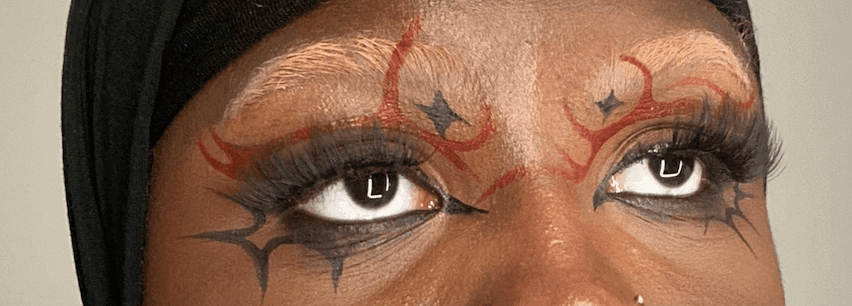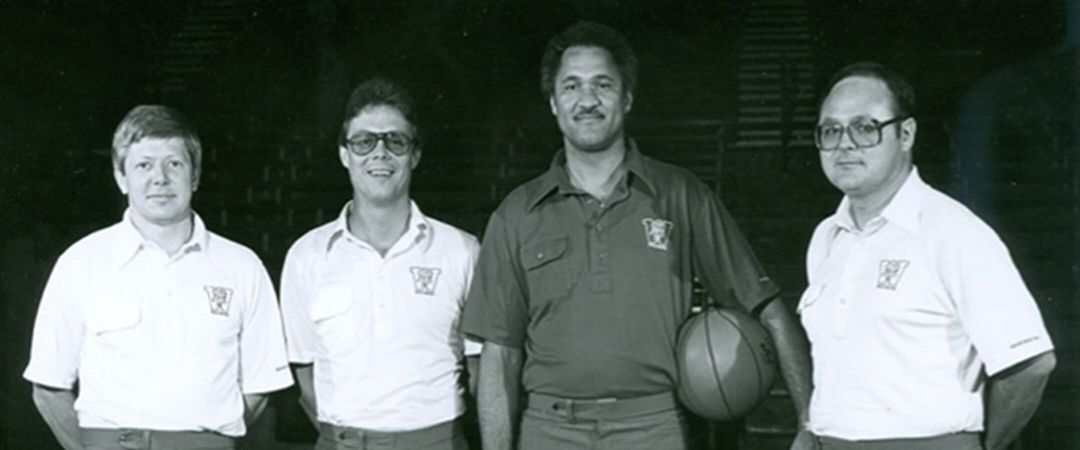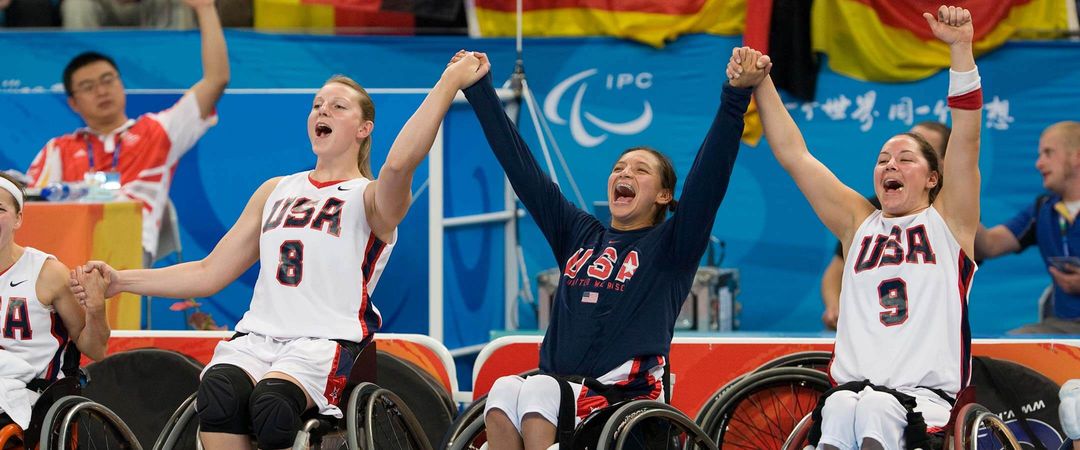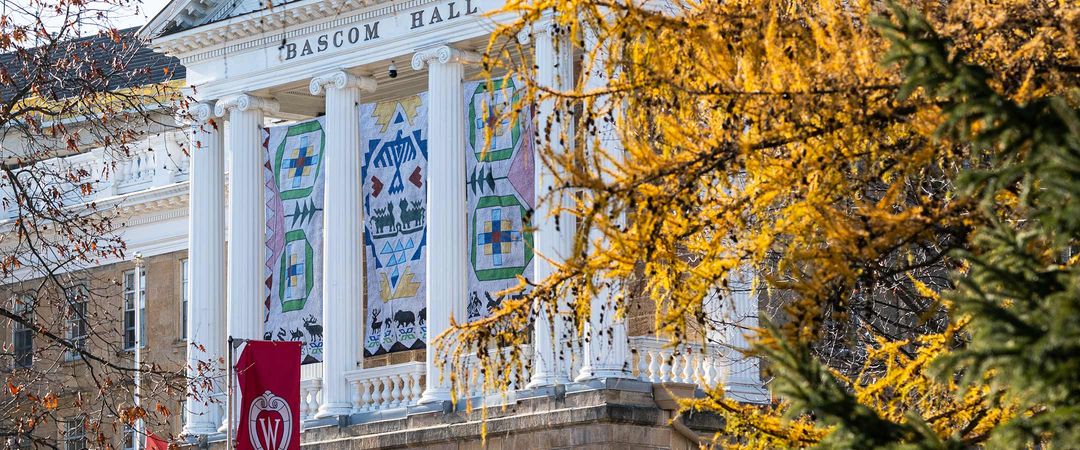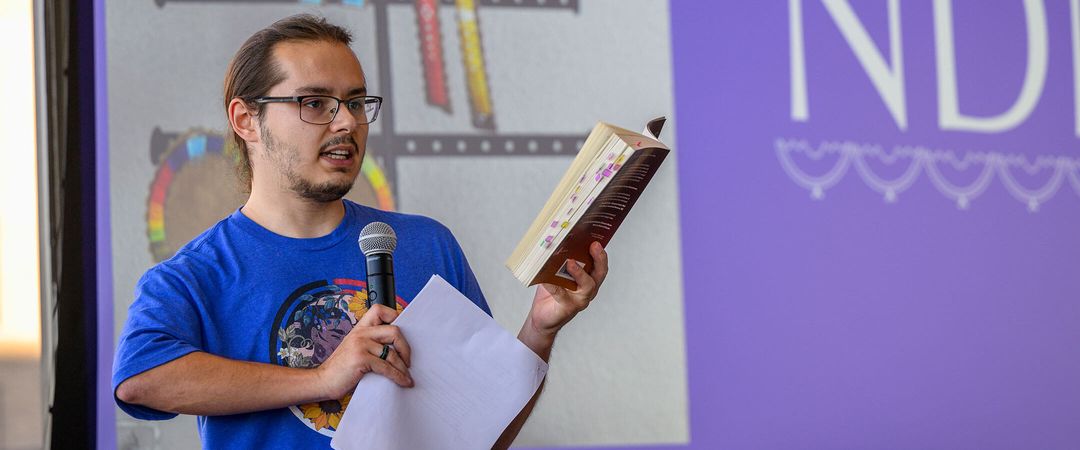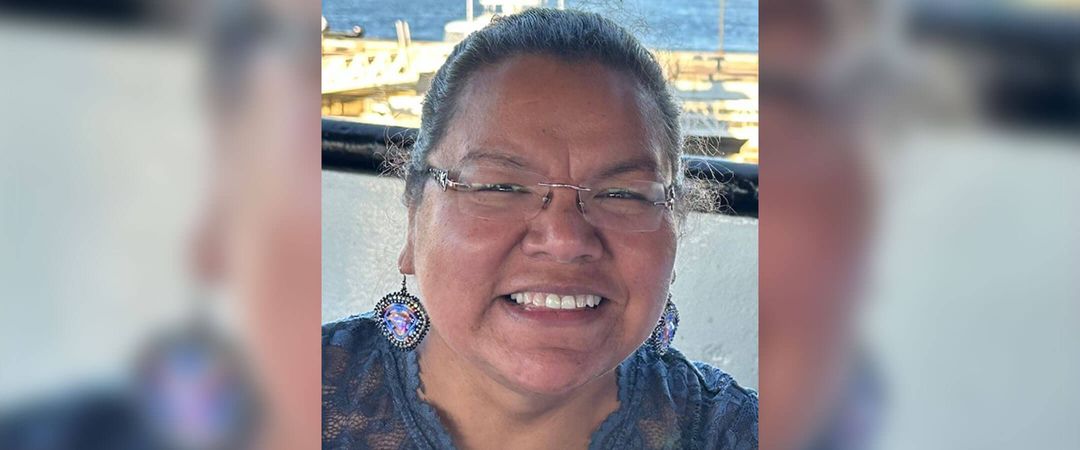The first makeup product Isha Camara ’21 ever purchased was a MAC Cosmetics lipstick in the shade Vixen, a deep burgundy. It was far too mature a color for her fourteen-year-old face, but she applied it religiously, wearing it down to a nub.
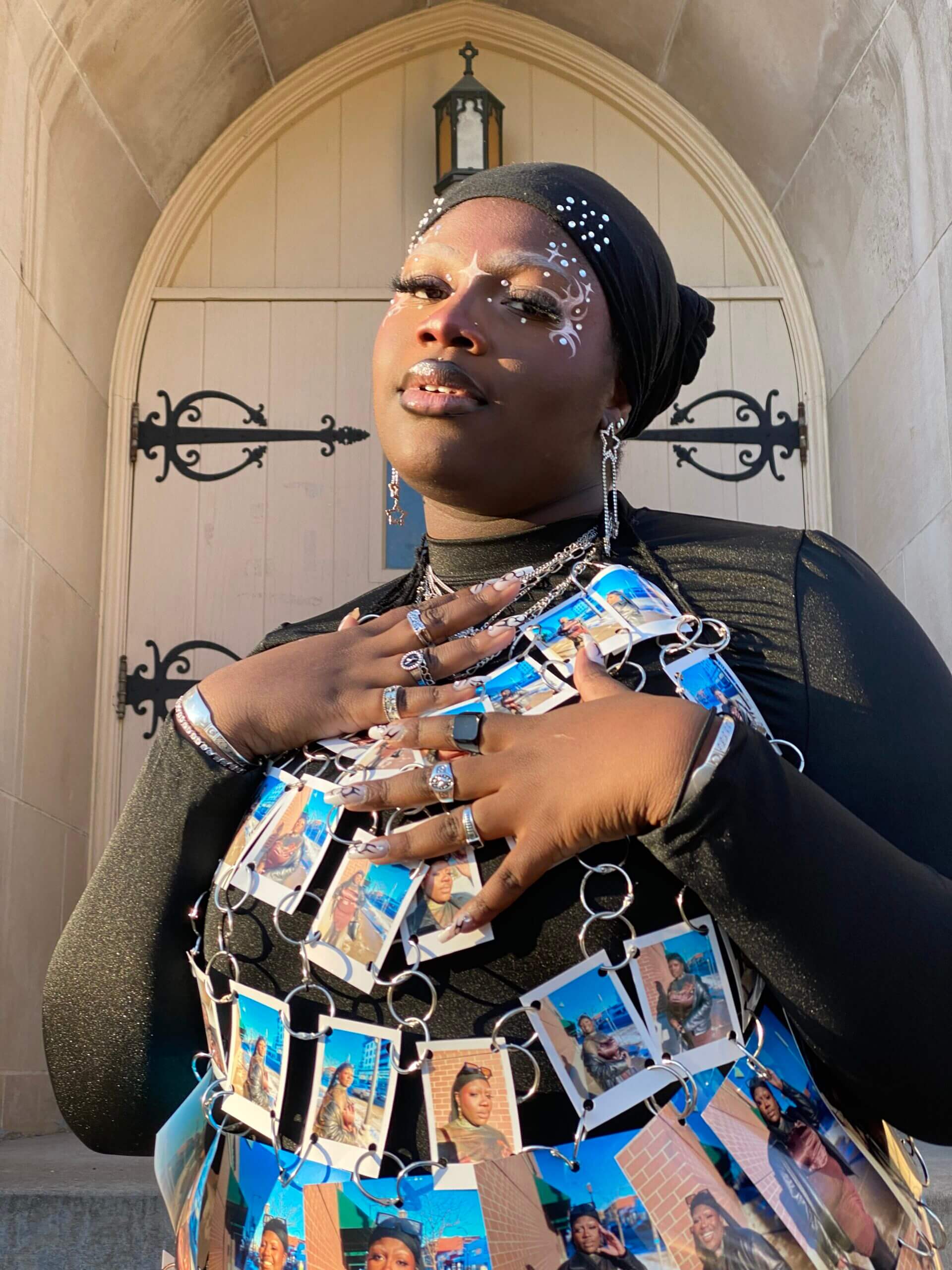
Today, Camara’s makeup collection includes items her adolescent self never dreamed of owning, from adhesive gems and dramatic false lashes to shades of foundation that fit her skin tone perfectly. And as her collection has grown more varied and complex, so, too, have her reasons for amassing it. For Camara, an accomplished visual artist and poet, makeup is a means not of performing societal notions of femininity, but of challenging those notions through looks that are bold, exciting, and unexpected.
“I’m insistent on the idea that I’m never beautiful with [just] one kind of appearance, so I’m also able to talk about these fluctuating definitions of beauty,” she says.
But before Camara could thoughtfully reflect on the function of makeup, she had to figure out how to use it. As a budding makeup artist, she was enamored with the power of a pressed powder or eyeshadow palette not to adorn her face, but to transform it.
“I would [say], ‘Okay, I haven’t used the color green yet. What can I make?’ It was a challenge for myself,” Camara says. “I would take pictures and show people, not to be like, ‘Do you think I look pretty?’ but, ‘Do you think this looks cool? Do you think this looks exciting? Do you think this looks different?’ I was excited about the conversation that makeup brought about.”
Her enthusiasm for makeup waned in college as what once was a ritual of pleasure and self-love diminished under new social and artistic circumstances.
“It got to be almost like a chore because I was so focused on being pretty among my peers,” Camara says. “I felt I was trying to overcompensate for a lack of femininity that, as a society, is denied to Black and dark-skin Black women, and so then whenever I did my makeup, I didn’t feel like I was honoring my full self.”
Jarred by her apathy towards one of her most prolific creative outlets, Camara began reflecting on her reasons for practicing makeup in the first place and interrogating the forces that drove her away.
“We’re constantly rebuilding a definition of femininity to create a space for ourselves. … But I think this is what inspired [me] falling in love with makeup again: that I was willing to see that as a challenge,” she says. “I [leaned] back to that idea that my makeup doesn’t have to look the same every day, so this idea of femininity can’t look the same every day. This idea of desirability and beauty can’t look the same every day.”
A brief scroll through the social media accounts on which Camara documents her makeup artistry indicates that her passion for the eccentric and unconventional returned with a vengeance. Her looks reflect not just mainstream beauty trends, but also textures, fashion, natural phenomena, and emotions. Her practice has also grown alongside an ever-evolving beauty industry: brands like Rihanna’s Fenty Beauty produce makeup in an unprecedented spectrum of shades, allowing Camara access to products she was long denied but now wields with the skill of a seasoned artist — and the excitement of a Vixen-lipped novice. (Camara was recently a finalist in Fenty’s The Next Fenty Face competition.)
“It feels full circle,” Camara says. “It feels like I’m 14 again in that creative, experimental way.”
